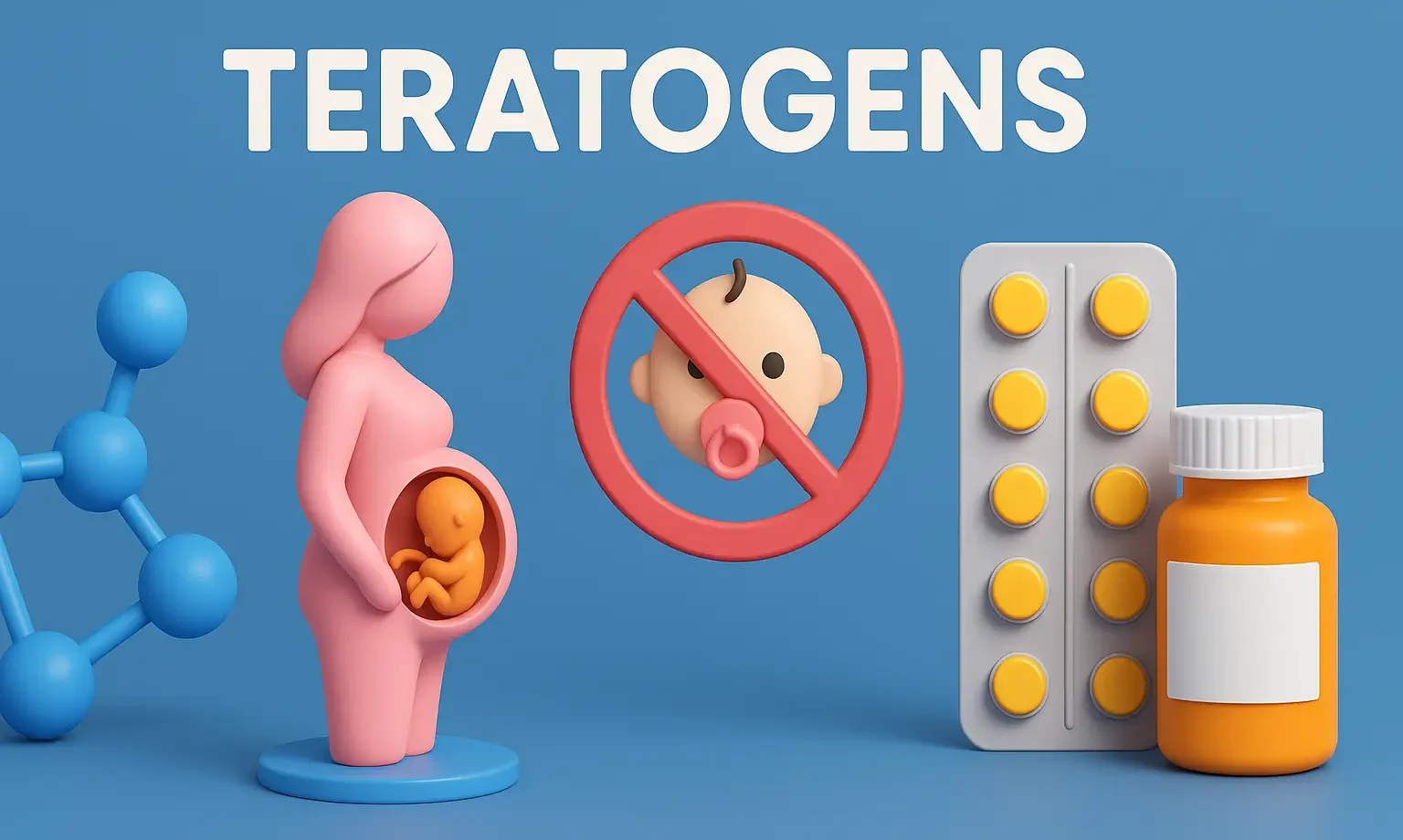- Teratogens are substances that cause birth defects (congenital anomalies) during fetal development. Many natural, plant-derived compounds have been found to exhibit teratogenic effects.
- Teratogens identification helps prevent congenital disorders and ensures safe drug use during pregnancy.
- The following section details common teratogenic agents, their sources, and the effects they cause.
Common Teratogenic Plant Compounds:

| Teratogenic Agent | Source | Effects |
| Thalidomide-like Alkaloids | Veratrum album (False hellebore) (family Melanthiaceae) | Causes limb deformities |
| Pyrrolizidine Alkaloids | Crotalaria, Senecio, Heliotropium species (family Asteraceae, Boraginaceae) | Liver toxicity, fetal growth restriction |
| Retinoids (Vitamin A analogs) | Plants rich in β-carotene, such as carrots and sweet potatoes | Craniofacial and heart defects |
| Mycotoxins (Aflatoxins, Fumonisins) | Fungi contaminating cereals, nuts | Neural tube defects, stillbirths |
Teratogenic effects are dose-dependent and occur when the fetus is exposed during critical periods of organogenesis.
Click Here to Watch the Best Pharma Videos

